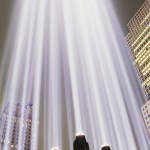 Would you be surprised if I told you that your memories of the attacks on September 11, 2001 are inaccurate? How much of what you remember of that day or of other Flashbulb Memories actually happened? Where were you, for example, when the Challenger disaster occurred? When Princess Diana died? When the attacks on 911 occurred in NYC? Join me as I explore the research that reveals how inaccurate our memories are (no matter how confident we feel). And by the way, was President Bush involved in a conspiracy over the events of September 11? Let’s find out.
Would you be surprised if I told you that your memories of the attacks on September 11, 2001 are inaccurate? How much of what you remember of that day or of other Flashbulb Memories actually happened? Where were you, for example, when the Challenger disaster occurred? When Princess Diana died? When the attacks on 911 occurred in NYC? Join me as I explore the research that reveals how inaccurate our memories are (no matter how confident we feel). And by the way, was President Bush involved in a conspiracy over the events of September 11? Let’s find out.
False Memories
-
- Greenberg, D.L. (2004). President Bush’s False ‘Flashbulb’ Memory of 9/11/01. Applied Cognitive Psychology, 18, 363-370.
-
- Flashbulb Memories by Daniel Greenberg on eSkeptic
-
- Lee, P.J. and Brown N.R. (2003). Delay related changes in personal memories for September 11, 2001. Applied Cognitive Psychology, 17, 1007-1015.
-
- Talarico, J.M. and Rubin, D.C. (2003). Confidence, not consistency, characterizes flashbulb memories. Psychological Science, 14(5), 455-461.
- Weaver, C.A. and Krug, K.S. (2004). Consolidation-Like effects in flashbulb memories: Evidence from September 11, 2001. The American Journal of Psychology, 117.


emma
May 31, 2010for the experiment you did with the diffrent waves and how more people wrote more about what they did on 9/11 ten days later after it happened; i thought maybe people were shocked by it and couldnt remember what happend to them immediatly after it because all they were thinking about was how terrible it was and what was happening to all the people that were dying. then 10 days later they thought “ohh yeaa i was at that that one coffe shop down the road at that time”